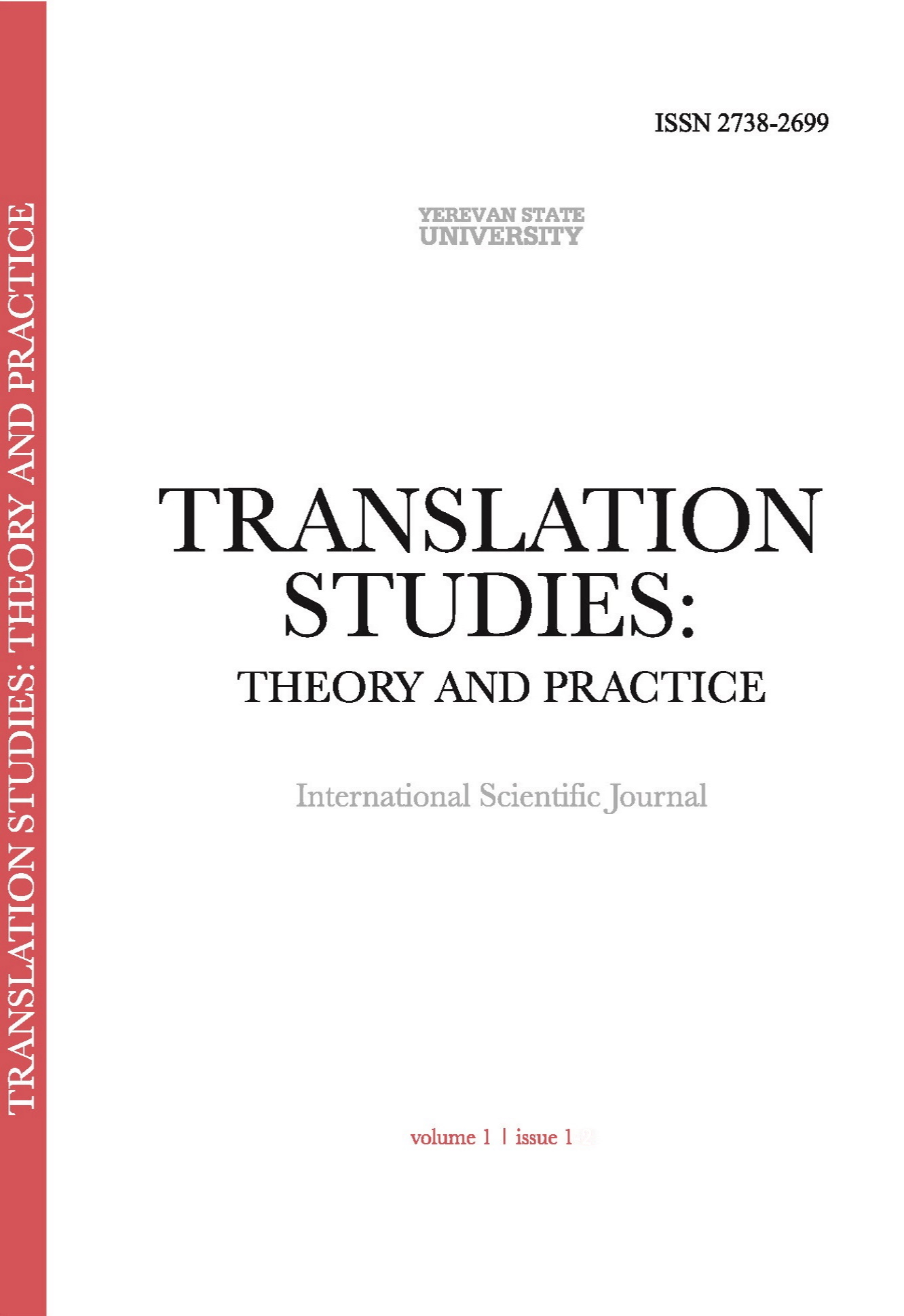Lexical and Grammatical Peculiarities of Accounting Texts and Their Translation
DOI:
https://doi.org/10.46991/TSTP/2021.1.1.45Keywords:
financial standards, equivalence, terminology, accounting languageAbstract
The present article deals with the peculiarities of translating accounting texts and the challenges translators are frequently faced with. The study is of theoretical and practical importance. The challenges while translating accounting texts are presented in the form of examples analyzing both grammatical and lexical peculiarities of such texts. The examples of both the source (SL) and target (TL) languages are extracted from IFRSs (International Financial Reporting Standards).
References
Baker, Mona. 1998. In Other Words: A Coursebook on Translation. London: Routledge.
House, Juliane. 1977. A Model for Translation Quality Assessment. Tübingen: Narr.
International Financial Reporting Standards (IFRSs) and International Accounting Standards (IASs). 2007. Approved by the IASB. Glossary of Terms.
Longman Business English Dictionary. 2007. London: Pearson ESL.
Nida, Eugene. 1964. Towards a Science of Translating. Leiden: E.J.Brill
Quirk, Randolph, Sidney Greenbaum, Geoffrey Leech, and Jan Svartvik. 1985. A Comprehensive Grammar of the English Language. London: Longman.
Reiss, Katharina. 1971. Möglichkeiten und Grenzen der Übersetzungskritik: Kategorien und Kriterien für eine sachgerechte Beurteilung von Übersetzungen. Munich: Hueber.
Yang, Xiaoyan. 2010. “Transformational Technique of Parts of Speech in Translation of English in Economics.” In Time Education, (9), 85-87.
Downloads
Published
How to Cite
Issue
Section
License
Copyright (c) 2021 Anush Movsisyan

This work is licensed under a Creative Commons Attribution-NonCommercial 4.0 International License.










